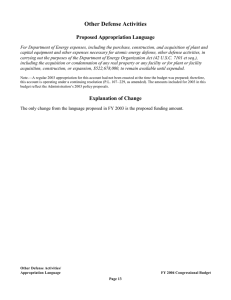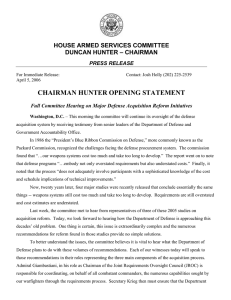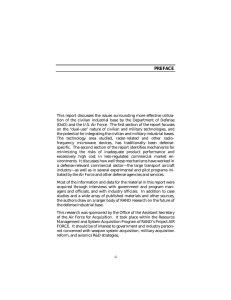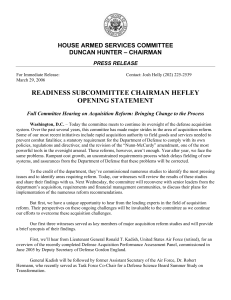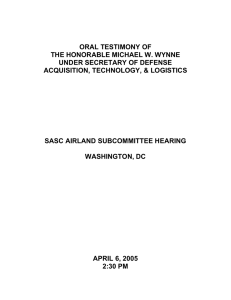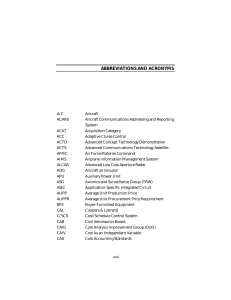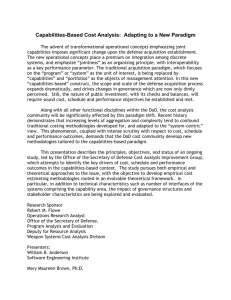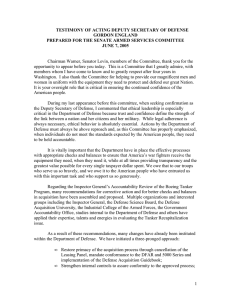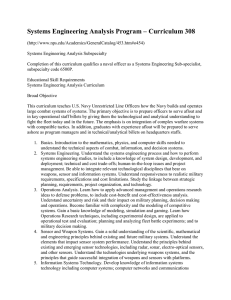CHAIRMAN HUNTER OPENING STATEMENT HOUSE ARMED SERVICES COMMITTEE DUNCAN HUNTER – CHAIRMAN
advertisement
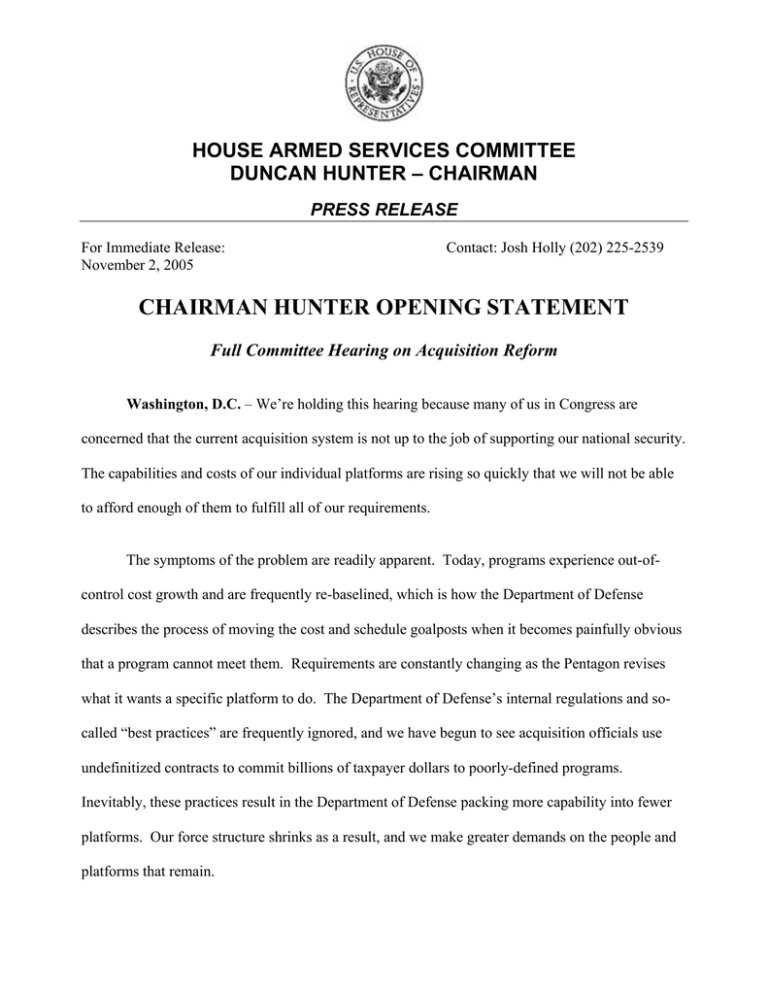
HOUSE ARMED SERVICES COMMITTEE DUNCAN HUNTER – CHAIRMAN PRESS RELEASE For Immediate Release: November 2, 2005 Contact: Josh Holly (202) 225-2539 CHAIRMAN HUNTER OPENING STATEMENT Full Committee Hearing on Acquisition Reform Washington, D.C. – We’re holding this hearing because many of us in Congress are concerned that the current acquisition system is not up to the job of supporting our national security. The capabilities and costs of our individual platforms are rising so quickly that we will not be able to afford enough of them to fulfill all of our requirements. The symptoms of the problem are readily apparent. Today, programs experience out-ofcontrol cost growth and are frequently re-baselined, which is how the Department of Defense describes the process of moving the cost and schedule goalposts when it becomes painfully obvious that a program cannot meet them. Requirements are constantly changing as the Pentagon revises what it wants a specific platform to do. The Department of Defense’s internal regulations and socalled “best practices” are frequently ignored, and we have begun to see acquisition officials use undefinitized contracts to commit billions of taxpayer dollars to poorly-defined programs. Inevitably, these practices result in the Department of Defense packing more capability into fewer platforms. Our force structure shrinks as a result, and we make greater demands on the people and platforms that remain. If we carry that process out to its logical extreme, sometime in the future the Air Force will have one air wing, the Navy will have one carrier battle group, and the Army will have one division. They’ll be the most capable units the world has ever seen, but there will not be enough of them to defend our national security interests around the globe. The simple truth is that we can no longer afford to equip our military this way. Acquisition reform is a rock that each administration—and almost every Congress—breaks its pick against every few years. Sometimes those reform efforts improve things. Sometimes they set us back. The challenge before us now is to introduce the discipline and timely decision-making that will help control costs without adding the extra layers of bureaucracy that inevitably increase costs. That’s no small challenge, but it’s critical for the future security of this country. We have addressed shortterm problems since September 11th, 2001 with a series of ad-hoc, stop-gap measures. They’re working, but they will not be adequate for the long term. It is time to change the system, rather than patch it up. The witnesses before us today are not to blame for the failures of a system that was developed for a peacetime military over the last twenty-five years. They will probably be the first to tell you that the Department of Defense is not satisfied with the situation either. In part, that is why they are here this morning. They will discuss how the Quadrennial Defense Review and the Defense Acquisition Performance Assessment might help us improve our acquisition practices. We will also discuss some of the measures that this committee proposed in the fiscal year 2006 defense authorization bill. ### http://armedservices.house.gov/
